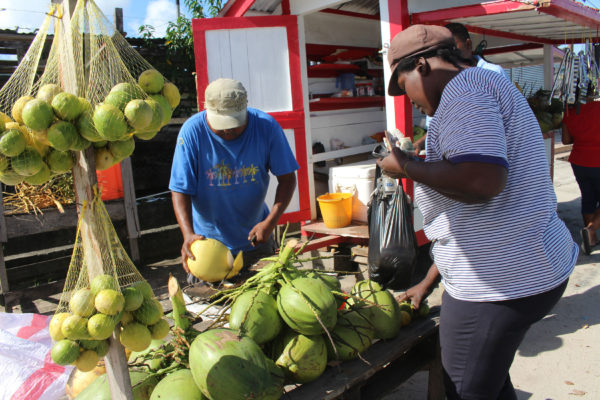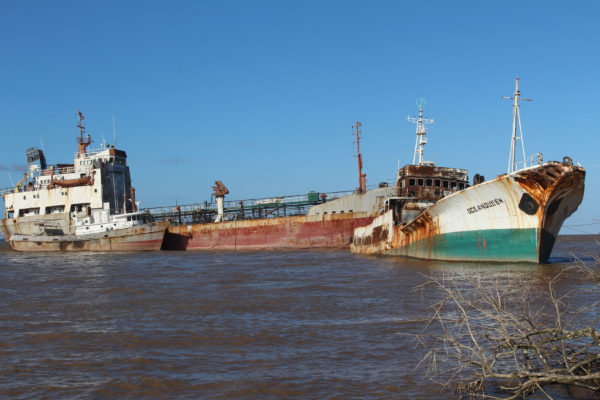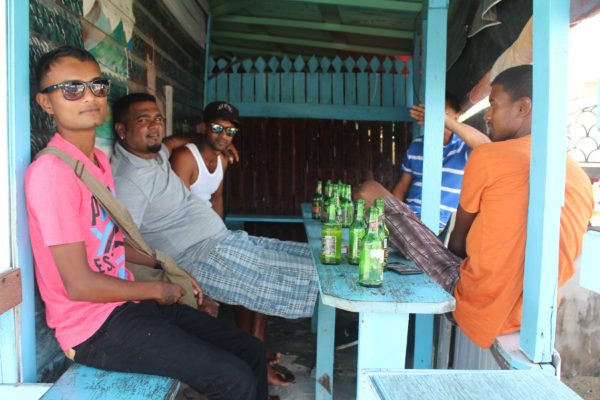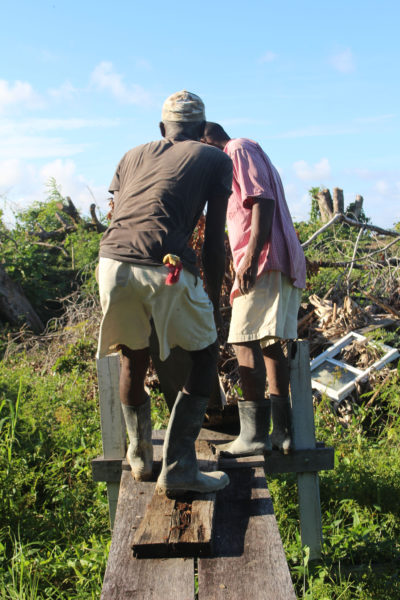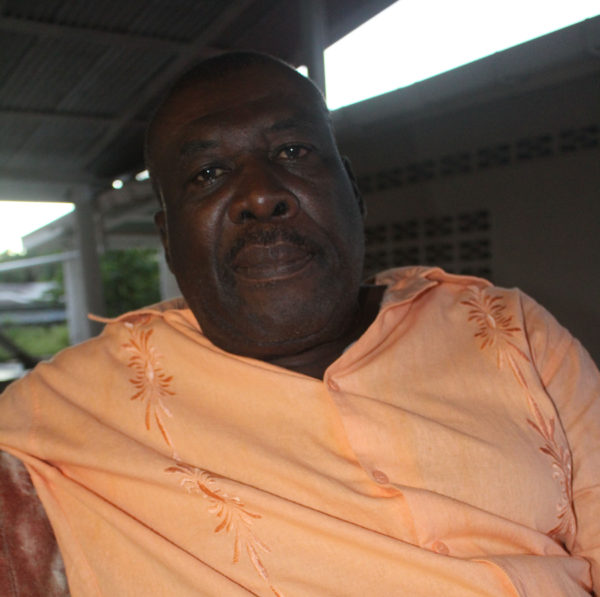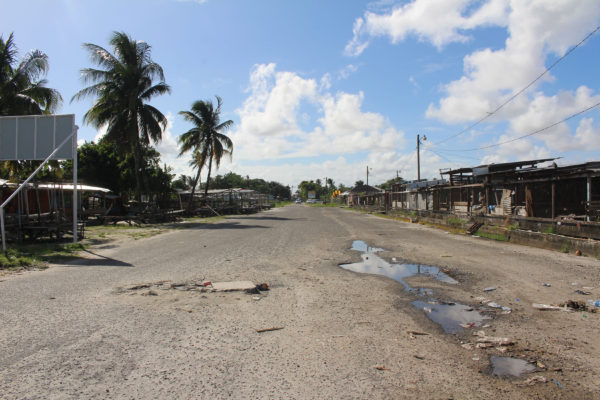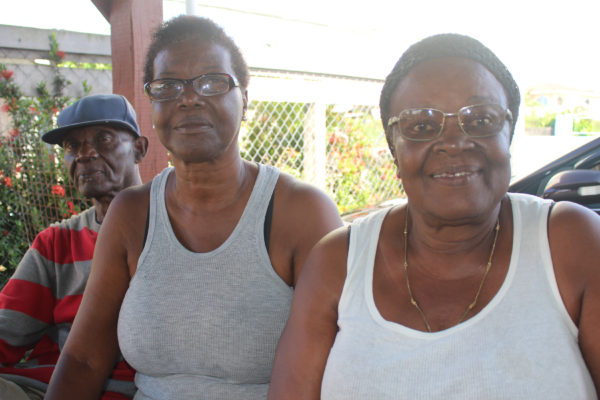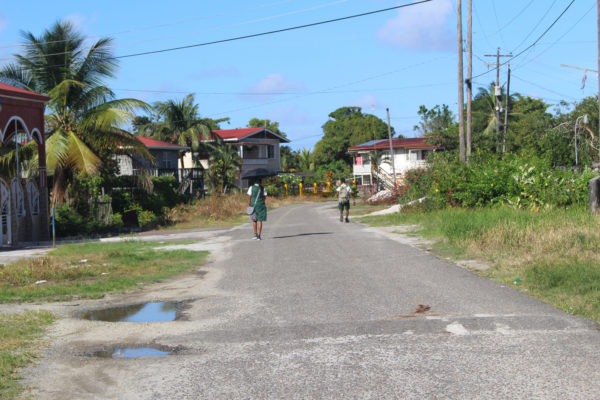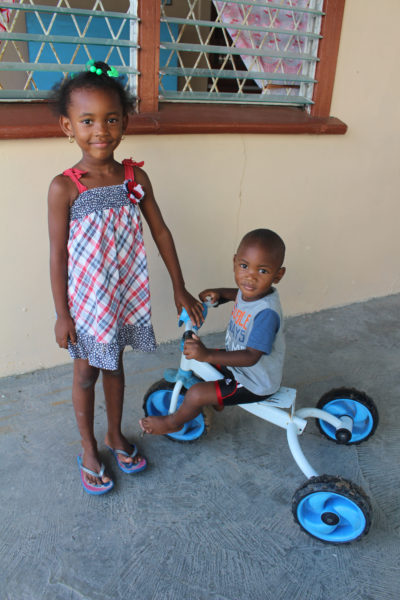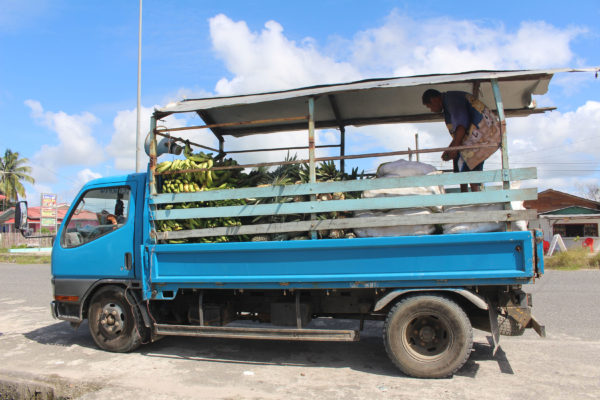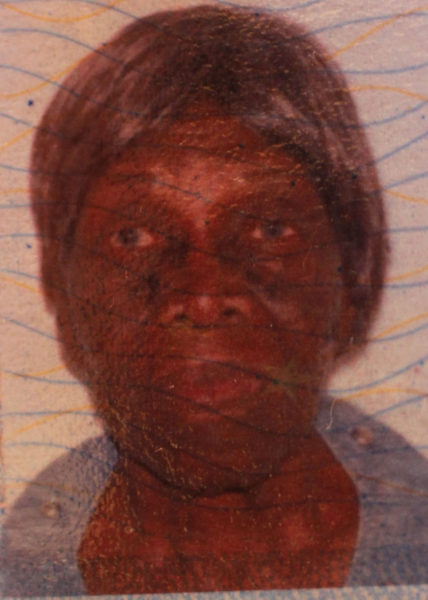Hydronie on the East Bank Essequibo is sandwiched between Bushy Park and Parika, beginning at the signboard on the road and ending at Market Street, where the trains once ran. It is 30 kilometres west of Vreed-en-Hoop, approximately 45 minutes by minibus.
Hydronie is a business community; it was busy with little snackettes selling egg balls and cassava chips, laced with bilimbi achar or mango sour, gigantic buildings and vehicles passing. Some men were busy at work on an excavator, while a noisy bunch of barely sober men gulped down beers, and chomped on cutters, while making conversation. A little further along, the bus slowed down at a coconut stall already flanked by customers waiting for their cool sweet coconut water under an already angry midday sun.
Oswald Prince sat in the shade of a shop having a chat with its owners. He told the World Beyond Georgetown: “I came to Hydronie in the 1950s; it wasn’t this populated. That was the time of the train. It hadn’t this public road. We used the road we now call Old Road, which led to the Parika Stelling.”
He said the only shop in the village then was Ganpat’s shop; the Ganpats being one of the first families. They planted rice as well. The other first families, he recalled, were the Taharallys, Danielses, Georges, Bollerses, Allicocks, Salicks, Staffords, Heineses and the Dolphins. The village now has many shops and a market with dozens of stalls.
According to Prince, most of these families took to farming back then, planting rice, ground provisions and cash crops. Now, however, Hydronie’s residents find themselves in business, in the ‘gold bush,’ the police and security forces. Some are also teachers, nurses, electricians and carpenters.
Hydronie then had one place of worship and that was the temple; the village has since added a church.
The village is susceptible to flooding during Spring tides and when it rains, something that rarely or almost never happened in its early days, Prince said.
Lorna Griffith, a relative of the shopkeeper who was standing nearby, said the village only began flooding after the previous administration widened the roads, blocking most of the drains in the process.
“We need to have the drains cleaned [and] especially the ones next to the Market Street fixed,” Griffith said.
Prince, a pensioner, grows bananas and plantains in his yard and rears cows and sheep.
With twenty-four hour electricity, transportation at almost any time, potable water, telephones and street lights, Prince only wished these were complemented by better drainage.
“We need a recreational centre for the boys; they play football and cricket. We need a hospital at this end whether is in Hydronie or Parika for persons living this side, the islands around and other riverain areas. The nearest hospital is at Leonora [15 kilometres away],” he added.
In search of Lilian George-Inverary, the oldest woman in the village and a daughter of one of the first families, the Georges, I passed Hydronie Market Square, holding my breath against the pungent fish smell. Along the way, men sat under the shade of trees imbibing alcohol and two youngsters were out on their verandah rapping to the beat coming from a little box. The young men turned out to be two local artistes, Paul ‘Chris P’ Clarke and his cousin Jodan Baker.
After about 15 minutes’ walk, I get to Old Road, and it’s totally different atmosphere. There, it’s quiet and only the breeze coming across the Essequibo River and through the trees can be heard. Old trees shade the road. There is much less activity here; hardly anyone is seen.
Now 93, George-Inverary was born at Goed Intent, West Bank Demerara on November 1, 1923. She was seated at her back door enjoying the breeze and sun that came through.
“This is a different Hydronie,” she recalled. “When I used to go to school, the road was a mud dam. When you go to school, you walking in swamp.
“The people back then was very nice, very kind; you didn’t even know we were neighbours. Sometimes a neighbour said, ‘Send one of Lilian boys let them help me’ and I’ll say, ‘guh quick bai, guh quick,’” she reminisced.
She added that the since her days here as a girl and then the days of early motherhood, there has been a lot of development and she’s quite contented.
Next door at her daughter’s, Noreen Walters, her son Lugard Inverary was keen to share the happenings in his community.
But before he began he asked two of his workers fixing his sister’s fence to put a plank across a four-foot canal at the back of his residence so that this reporter could take pictures of the boats moored there. Following the workers out of Walters’s yard and through Inverary’s we got to a bush-filled canal with trees chopped lying on the side of the sea dam. Once on the dam we got a better view of three boats moored closely together and another a short distance away.
Back at his sister’s house, Inverary took to sharing a little of the village history, his experiences and some disadvantages of living here.
“I was born in Ogle but came here as a baby,” he said. “Hydronie is [rumoured] to have existed since the time of the Dutch.
“I attended the Parika St Stephen’s Anglican School. During that time they had the big wooden buses working and a couple of cars which you’d find belonged to the rich people. Travelling with the train was the safest and cheapest way. When people wanted to move their cattle, they used the trains. The last [train] trip was sometime in 1973.”
Back in the day, Inverary said, you could tell the time by the movement of parrots. “In the afternoons when the parrots headed home, you know was five o’clock and when they headed out in the mornings, you know was seven o’clock. There were more animals; population changed that,” he said.
Sometime back, he added, he wrote letters to persons in charge of the sea defence concerning a dockyard but nothing was done and he was told to stop. “A guy by the name of Rahaman told me to stop writing letters and write one instead to [Milton] Dookie, the chairman then. A neighbour, Jai Persaud was operating a dockyard on the sea dam for many years and when they sand-blasted we started having problems; sand ended up in the water and sometimes you eating rock. I later met Persaud concerning this and he showed me a letter to Desmond Hoyte years ago. [Hoyte when] president permitted him to do his work but never did a follow-up to see what he was doing. His letter never said anything about building a dockyard but about wanting to do temporary boat repairs. Years later he’s still there.”
Since local government elections, he said, things have gotten worse. “At nights, people using the sea dam for prostitution, which encouraging persons using drugs. Vagrants use the boats to sleep at night. I had to install cameras cause I fear for my safety. It had two boats there, and then one night I hear a sound and I said somebody get shot at the back there. The next morning I see is another boat they bring and the sound had to be when the other boat ram the next one into the sea dam. People working on the boats at nights. My cousin living closer to the dam got ill from the sand-blasting.”
The man also pointed to an empty weed-filled lot next to his mother’s residence. The lot he said was rumoured to be owned by “the Baha’is” and he called on whoever the owners are to get the land cleared because of reptiles that are encroaching on his mother’s property.
With Bushy Park beach being close by persons usually go there to hang out and drink. However, according to Inverary, persons have complained about seeing women being raped. He is therefore calling for security to be heightened; he said some of these persons would be loitering on Old Road at night.
Highlighting the bush-filled canal behind his property, he said he had complained to the chairman, deputy and the engineer about the cleaning of the canal, which has not been done in almost two years. He said that in 2015, the engineer had told him that it would take a month for the machine to get there. It has been almost two years and Inverary is still waiting and so is the rest of Hydronie.
It was this same canal, Inverary said, that he learnt to swim; the very canal he crossed almost every day as a little boy with his mother to sell homemade buns and cassava pone to the engineers working to build the sea dam decades ago.
“They need to build this place and get rid of these boats and all this nonsense going on at the back. The roads need fixing and the parapets need cleaning. The same money they paying people to clean they could give persons as incentives to keep their surroundings clean and people could save and come together and have a village day or a town day,” he said.
Only a month ago, Inverary said, he paid persons to cut down the trees at the back.
Although he had been overseas for quite some time, he said he would never settle anywhere else; Hydronie is home. He wants to see a better Hydronie.

